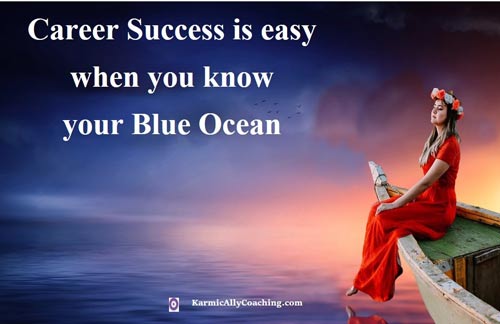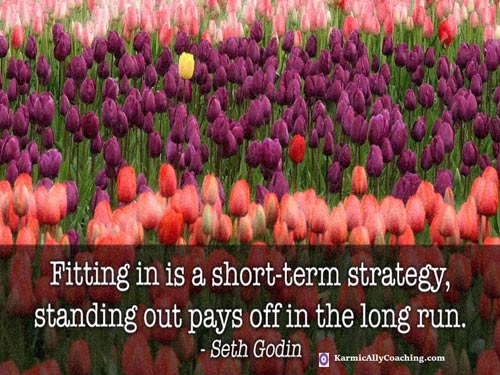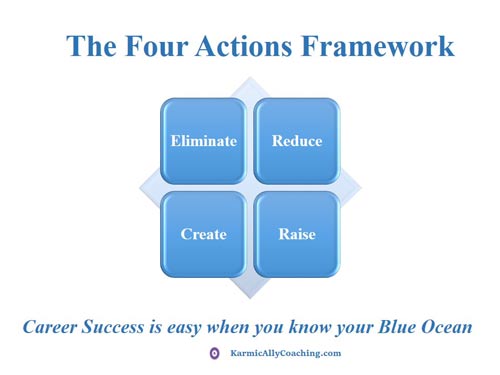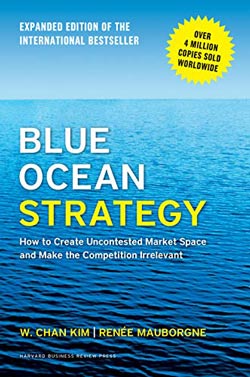This post has already been read 1689 times!

It’s a fact the world we knew has changed in 2020 and if you’re feeling there isn’t any point in setting career or any kind of goal in an upside down world, I understand.
Many companies have had to lay off staff to survive lockdown conditions or to stay in business while others have deferred promotions, pay increments and bonuses.
If you, dear reader have been affected by these business decisions, I feel your pain.
I’ve experienced redundancies during economic downswings and jobs that were secure vanished overnight and so have many of my colleagues and friends.
But that doesn’t mean that all is lost.
The job market is starting to pick up albeit slowly and if you have what the hiring manager is looking for, then enjoy the interviews and signing your new job contract!
Companies may introduce new criterion for promotions and salaries and that is natural in a new business environment.
You can still make this a good year for your career if you apply strategic thinking.
You need to figure out how to showcase yourself to rise above the noise and become visible enough to achieve your career or business goals.
Before your eyes glaze over and you think strategic thinking is a vague buzzword CEOs or bosses toss around to sound important, please read on because I’m going to show you how Madonna did it and how you can too for career success!
Actually, Strategic Thinking is a skill we can all learn. It is how we plan, think, and ask questions to grow and learn while we work toward a goal.
It’s embracing what you were like when you were a young child and asking questions, most importantly, “why?”
Thinking strategically is based on a combination of knowledge, experiences, and your hunches. It’s about taking calculated and un-calculated risks that we hope will pay off in the future.
It’s about shifting your focus from just doing things to thinking and planning what should be getting done and if there is another way to achieve the results we want.
Strategic thinkers are creative individuals who think outside the box, not limiting themselves to the tried and true or best practice way of doing things.
On the other hand, non-strategic thinkers approach every task the same way, no matter if changing their strategy would yield better results. They are reactive and wait for guidance, rarely presenting new ideas.
For example, if you’re focusing on the same skill sets that others are in a job application you are just part of the crowd.
Why not look for something that makes you so special (provided it is true) to put in your CV and covering letter that compels the hiring manager to want to interview you?
It’s this approach that I share in Job Search Success and the same strategy applies even within an organization when you are vying for that promotion and trying to raise your Executive Presence.
It’s all about discovering your Unique Selling Proposition (USP) and knowing how to use it to your advantage.
The Career and Success Story of Madonna Ciccone

Believe it or not but I’ve seen Madonna’s career actually being used as a case study to analyse the role of strategy in career success within a fast-paced business environment!
In fact strategy exists for both individuals and organizations and this is a prime example.
If you were a teenager or young adult in the 1980s, you’d remember how Madonna seemed to have arrived out of nowhere and then made an impact with her first album in 1983.
It was a normal sight to see young girls wearing half finger lace gloves and bangle type earrings. Such was her impact on young teenagers.
More importantly, that first album was the successful result of a superb strategy.
In fact, long before Beyoncé and Lady Gaga, Madonna prove she was an astute strategist in the world of entertainment where the competition to survive is tough.
Madonna articulated her core mission, established her objectives, adopted a relentless strategic intent, and recognized that she could carve out uncontested market space by developing a USP and personal brand unlike anyone else’s.
As career professionals, freelancers, consultants and solopreneurs, the key lesson is to develop a competitive advantage that differentiates us from others in our field and stand out above the noise.
Normally when we think of competitive advantage, we assume that we’re doing the same thing as everyone else but better and become slaves to benchmarks, best practices and end up mimicking our competitors.
That’s not what Madonna did to achieve success.
She continues to reinvent herself and stay relevant. Many of her fans, including me, have followed her from where she started and continue to purchase her music.
She discovered her USP that helped her stand out from the crowd and created brand Madonna.
Now as professionals, we have 2 ways to decide on our USP.
You can either choose a generic strategy or build on it by deciding how you will do things differently or you can find your really unique quality and create a USP that leaves your competitors behind.
Madonna chose the latter and discovered what is called her Blue Ocean.
Blue Ocean strategy means thinking unconventionally, and most times, we have to force ourselves to change our thinking habits.
It’s helpful to train ourselves to look at situations not with our habitual perspective but with a keen eye for the hidden opportunities in the situation.
“Blue Ocean” is a strategic term that first appeared in a book called Blue Ocean Strategy by W. Chan Kim and Renée Mauborgne and refers to uncontested market space carved out by shrewd competitors.
Kim and Mauborgne showed that most companies are driven to compete in what they call “Red Oceans.”
That’s where every industry is today. There is a defined market, defined competitor and a typical way to run a business in any specific industry.
The analogy used was one of a shark infested ocean where the sharks are fighting each other for the same prey.
That means operating at lower margins, reducing head count, tight budgets, lots of stress and companies going belly up when a recession or pandemic hits them.
The alternative is to carve out uncontested market space, differentiate yourself, your product, or your firm in some way meaningful to your target market.
That is, to find your Blue Ocean.
While the book talks about organizations, we can use the concept even at an individual professional level.
How to create your own blue ocean for career progression
In the book, Kim and Mauborgne talk about the Four Actions Framework as a method to get you thinking in fresh ways about what you do each day.
Instead of the conventional competitive model where we compete across a full range of factors, they suggest the blue ocean approach where we ask basic questions with the intention of creating new competitive factors that would appeal to unexplored market segments.
The Four Actions Framework consists of 4 questions designed to challenge an industry’s established structure and business logic:
(1) Which of the factors that the industry takes for granted should be eliminated?
(2) Which factors should be reduced well below the industry’s standard?
(3) Which factors should be raised well above the industry’s standard?
(4) Which factors should be created that the industry has never offered?
Another simpler way of looking at these questions is to think of them as 4 steps – Eliminate, Reduce, Raise and Create with the related activities enabling you to create a new value.

Let’s translate this to your career goals and intentions to stand out.
Eliminate: We identify the key factors you are competing on but which are not really adding value to where you want to be in your career.
Here we are not saying to abandon those factors but to remove them from the equation while we work out our blue ocean.
So skills and experiences are still valuable but we are looking for THAT secret sauce that makes you valuable.
Reduce: Next consider which factors you should focus less energy on so you have time for the factors that really make an impact.
Raise: Now that we have removed the factors that are common to your competition and which are not adding value to your professional profile, focus on what factors, skills, or added value you can work on to be the very best and stand apart.
This won’t be the same for every professional but in your case it might just be networking skills, executive presence, high emotional intelligence, people skills or something you do even better than your peers which has value in the next step of the career rung for you.
Now comes the really strategic thinking part.
Create: What can you bring to the table that is different? What do you possess that your peers don’t?
Speaking from experience, in one of my jobs, I received the offer over other competing candidates because of my multi-cultural experience which fitted in to an organization where the parent company and regional headquarters were located in 2 different countries with different methods of working to the local company and the need to adjust when dealing with colleagues in both without conflict.
My predecessor had quit because he found the others in those countries difficult to deal with. Actually the feeling had been mutual.
In other words, how are you going to find your USP that will enable you to break away from your competition?
PS. Once you’ve discovered your Blue Ocean, follow the tips in this blog post to let the world know how unique you really are!





 I adhere to the Certified Coaches Alliance Code of Ethics and Standards. A copy is available on request.
I adhere to the Certified Coaches Alliance Code of Ethics and Standards. A copy is available on request.
 Let's Talk through the Connect Form:
Let's Talk through the Connect Form:
Great post and definitely food for thought!
Thanks!
Thank you for sharing the concept of the blue ocean. It’s the first time I’ve heard of it and it struck a chord in me especially since I love the ocean too. I also agree that asking yourself “Why” is key in finding your own blue ocean. Many ocean blessings Debra
Welcome Debra. I agree asking oneself the “Why” question when asked 3-5 levels down helps to find our own blue ocean.
As a child I was the one who always asked “why,” much to my mother’s dismay. I haven’t grown out of it and still ask “why.” It’s probably the most important question we can ask in our lives and it has no expiration date!
I agree Barb. It is the “why” question that stimulates the mind to solve problems. Funny thing, but I used to do a lot of asking “why” questions when I was a child and my poor father whom I considered the reservoir of all knowledge (and still do) got me the entire Junior Brittanica Encyclopedia to get some respite! 🙂
I loved reading about the Blue Ocean. It is something I feel that has been embedded in me without ever putting a name to it. It is nice to see it in words.
So glad you enjoyed the post Heather Maria. Many of us who are life long learners and who apply the knowledge gained are in fact practicing finding our blue ocean without putting a name to it.
Thanks Vatsala for your wisdom. I have not heard of the blue ocean strategy before, it makes sense in this job market. I have been operating this way with my business in the last few months! Many Blessings, Lisa
Thanks Lisa. Am delighted you enjoyed the post Finding our blue ocean is important in the current job market. It also makes a lot of sense for businesses or practitioners in the current situation who don’t want to pivot but adapt to changing times and play on hidden strengths that are now surfacing.
Good write, Thanks for sharing. I have just learned Blue ocean strategy (Eliminate,create,reduce,raise) and the story of Madonna was really good.
I have just read about her life in wiki due to your message.
great going. thanks.
Glad you found the case study and the content useful, Jayaraman. Thanks for visiting the blog.